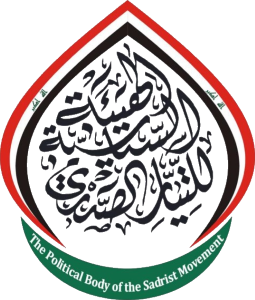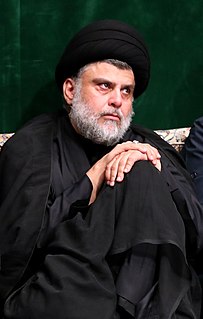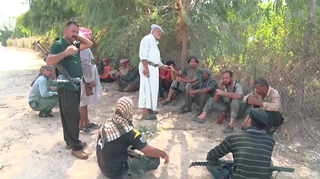| |||||||||||||||||||||||||||||||||||||||||||||||||||||||||||||||||
All 29 seats for the Diyala Governorate council | |||||||||||||||||||||||||||||||||||||||||||||||||||||||||||||||||
|---|---|---|---|---|---|---|---|---|---|---|---|---|---|---|---|---|---|---|---|---|---|---|---|---|---|---|---|---|---|---|---|---|---|---|---|---|---|---|---|---|---|---|---|---|---|---|---|---|---|---|---|---|---|---|---|---|---|---|---|---|---|---|---|---|---|
| |||||||||||||||||||||||||||||||||||||||||||||||||||||||||||||||||
| |||||||||||||||||||||||||||||||||||||||||||||||||||||||||||||||||
The Diyala governorate election of 2009 was held on 31 January 2009 alongside elections for all other governorates outside Iraqi Kurdistan and Kirkuk.
| |||||||||||||||||||||||||||||||||||||||||||||||||||||||||||||||||
All 29 seats for the Diyala Governorate council | |||||||||||||||||||||||||||||||||||||||||||||||||||||||||||||||||
|---|---|---|---|---|---|---|---|---|---|---|---|---|---|---|---|---|---|---|---|---|---|---|---|---|---|---|---|---|---|---|---|---|---|---|---|---|---|---|---|---|---|---|---|---|---|---|---|---|---|---|---|---|---|---|---|---|---|---|---|---|---|---|---|---|---|
| |||||||||||||||||||||||||||||||||||||||||||||||||||||||||||||||||
| |||||||||||||||||||||||||||||||||||||||||||||||||||||||||||||||||
The Diyala governorate election of 2009 was held on 31 January 2009 alongside elections for all other governorates outside Iraqi Kurdistan and Kirkuk.
A Sunni Arab candidate from the National Reform Trend was killed near the disputed town of Mandali. [1]
Immediately after the election, the Iraqi National List and the Iraqi National Dialogue Front claimed victory in Diyala. [2] The final results saw them both winning seats, but no part having an overall majority.
A month after the vote, 2000 supporters of ISCI protested at the results, saying internally displaced refugee supporters had been unable to vote, and a large number of their supporters had turned up to vote to find their names were not on the electoral roll. [3]
In March, the INDF said they would form an alliance with the State of Law Coalition and the Iraqi Islamic Party allied with the Islamic Supreme Council of Iraq. [4]
 | |||||
| Party | Votes | % | Seats | +/– | |
|---|---|---|---|---|---|
| Tawafuq | 91,135 | 21.17 | 9 | −5 | |
| Hiwar | 66,309 | 15.41 | 6 | +6 | |
| Kurdistan Alliance | 62,219 | 14.46 | 6 | −1 | |
| Iraqi National List | 42,650 | 9.91 | 3 | +3 | |
| State of Law Coalition | 27,408 | 6.37 | 2 | +2 | |
| Diyala Coalition | 25,068 | 5.82 | 2 | +2 | |
| National Reform Trend | 20,140 | 4.68 | 1 | +1 | |
| Other parties | 95,478 | 22.18 | 0 | – | |
| Total | 430,407 | 100.00 | 29 | −12 | |
| Source: Niqash [5] , Al Sumaria, New York Times | |||||
The politics of Iraq take place in a framework of a federal parliamentary representative democratic republic. It is a multi-party system whereby the executive power is exercised by the Prime Minister of the Council of Ministers as the head of government, as well as the President of Iraq, and legislative power is vested in the Council of Representatives.

Parliamentary elections were held in Iraq on 30 January 2005 to elect the new National Assembly, alongside governorate elections and a parliamentary election in Kurdistan Region. The 275-member legislature had been created under the Transitional Law during the international occupation. The newly elected body was given a mandate to write a new constitution and exercise legislative functions until the new constitution came into effect. The elections also led to the formation of the Iraqi Transitional Government.

The Iraqi Turkmen Front, also abbreviated as ITF, is a political movement representing the Iraqi Turkmen people. It was founded on April 5, 1995 as a coalition of several Turkmen parties operating within the framework of Iraq's unity. The party aims for the Turkmen community to have greater political involvement, increased recognition and more rights.

Parliamentary elections were held in Iraq on 15 December 2005, following the approval of a new constitution in a referendum of 15 October.
The first government of Iraq led by Prime Minister Nouri al-Maliki took office on May 20, 2006 following approval by the members of the Iraqi National Assembly. This followed the general election in December 2005. The government succeeded the Iraqi Transitional Government which had continued in office in a caretaker capacity until the new government was formed and confirmed.

The Sadrist Movement is an Iraqi Islamic national movement led by Muqtada al-Sadr. The movement draws wide support from across Iraqi society and especially from the Shi'a poor in the country. The most important person in setting the goals and the philosophy of the movement was Grand Ayatollah Mohammad Mohammad Sadeq al-Sadr. A prominent preceding influence had also been Muhammad Baqir al-Sadr. The movement is religious and populist. Its goal is a society ordered by a combination of religious laws and tribal customs.

Governorate or provincial elections were held in Iraq on 31 January 2009, to replace the local councils in fourteen of the eighteen governorates of Iraq that were elected in the 2005 Iraqi governorate elections. 14,431 candidates, including 3,912 women, contested 440 seats. The candidates came from over 400 parties, 75% of which were newly formed.

Parliamentary elections were held in Iraq on 7 March 2010. The elections decided the 325 members of the Council of Representatives who would elect the prime minister and president. The elections resulted in a partial victory for the Iraqi National Movement, led by former Interim Prime Minister Ayad Allawi, which won 91 seats, making it the largest alliance in the Council. The State of Law Coalition, led by incumbent Prime Minister Nouri Al-Maliki, was the second largest grouping with 89 seats.
The Al Anbar Governorate election of 2009 was held on 31 January 2009 alongside elections for all other governorates outside Iraqi Kurdistan and Kirkuk.
The Baghdad governorate election of 2009 was held on 31 January 2009 alongside elections for all other governorates outside Iraqi Kurdistan and Kirkuk.

The Nineveh Governorate election of 2009 was held on 31 January 2009 alongside elections for all other governorates outside Iraqi Kurdistan and Kirkuk Governorate.
List of the Martyr al-Mehraab and the Independent Forces,, commonly known as the al-Mehraab Martyr List was a Shi'a Islamist, Iraqi political coalition formed for the 2009 Iraqi governorate elections by the Islamic Supreme Council of Iraq.

Governorate or provincial elections were held in Iraq on 20 April 2013, to replace the local councils in the governorates of Iraq that were elected in the Iraqi governorate elections of 2009. Elections took place in 12 of Iraq's 18 governorates. Elections didn't take place in the 3 governorates forming the Kurdistan Region or Kirkuk, Anbar, or Nineveh, meaning that a total of 378 provincial council seats were up for election.

The 2012–2013 Iraqi protests started on 21 December 2012 following a raid on the home of Sunni Finance Minister Rafi al-Issawi and the arrest of 10 of his bodyguards. Beginning in Fallujah, the protests afterwards spread throughout Sunni Arab parts of Iraq. The protests centered on the issue of the alleged sectarianism of Prime Minister Nouri al-Maliki. Pro-Maliki protests also took place throughout central and southern Iraq, where there is a Shia Arab majority. In April 2013, sectarian violence escalated after the 2013 Hawija clashes. The protests continued throughout 2013, and in December Maliki used security forces to forcefully close down the main protest camp in Ramadi, killing hundreds of civilian protesters in the process. Sunni groups, such as the Army of the Men of the Naqshbandi Order, took up arms in response, and joined forces with the General Military Council for Iraqi Revolutionaries (GMCIR), a militant group made up of former Ba'athists, to conduct a military campaign against the Iraqi government. The Islamic State of Iraq and the Levant (ISIL) would later grow out of this civil conflict, escalating into a full-scale war.

The 2013 Nineveh Governorate election in Iraq was held on 20 June with elections for the Al Anbar Governorate. Due to security problems, turnout was less than half that of the 2009 election. This election saw Sunni Arab parties lose a number of seats to minority parties.

Salim Abdullah al-Jabouri (Arabic: سليم عبدالله الجبوري) is an Iraqi politician who was elected as the Speaker of the Iraqi Parliament on 15 July 2014 until 1 July 2018.

The departure of US troops from Iraq in 2011 ended the period of occupation that had begun with the U.S.-led invasion in March 2003. The time since U.S. withdrawal has been marked by a renewed Iraqi insurgency and by a spillover of the Syrian civil war into Iraq. By 2013, the insurgency escalated into a renewed war, the central government of Iraq being opposed by ISIL and various factions, primarily radical Sunni forces during the early phase of the conflict. The war ended in 2017 with an Iraqi government and allied victory, however ISIL continues a low-intensity insurgency in remote parts of the country.

Parliamentary elections were held in Iraq on 12 May 2018. The elections decided the 329 members of the Council of Representatives, the country's unicameral legislature, who in turn will elect the Iraqi President and Prime Minister. The Iraqi parliament ordered a manual recount of the results on 6 June 2018. On 10 June 2018, a storage site in Baghdad housing roughly half of the ballots from the May parliamentary election caught fire.

The Islamic State insurgency in Iraq is an ongoing low-intensity insurgency that began in December 2017 after the Islamic State (ISIS) lost territorial control in the War in Iraq of 2013 to 2017. ISIS and allied White Flags fought the Iraqi military and allied paramilitary forces.
Parliamentary elections were held in Iraq on 10 October 2021. The elections decide the 329 members of the Council of Representatives who will in turn elect the Iraqi president and confirm the prime minister. 25 million voters are eligible to take part in Iraq's fifth parliamentary election since the 2003 US-led invasion and the first since the 2019 Iraqi October Revolution The election result led to the 2021 Baghdad clashes.